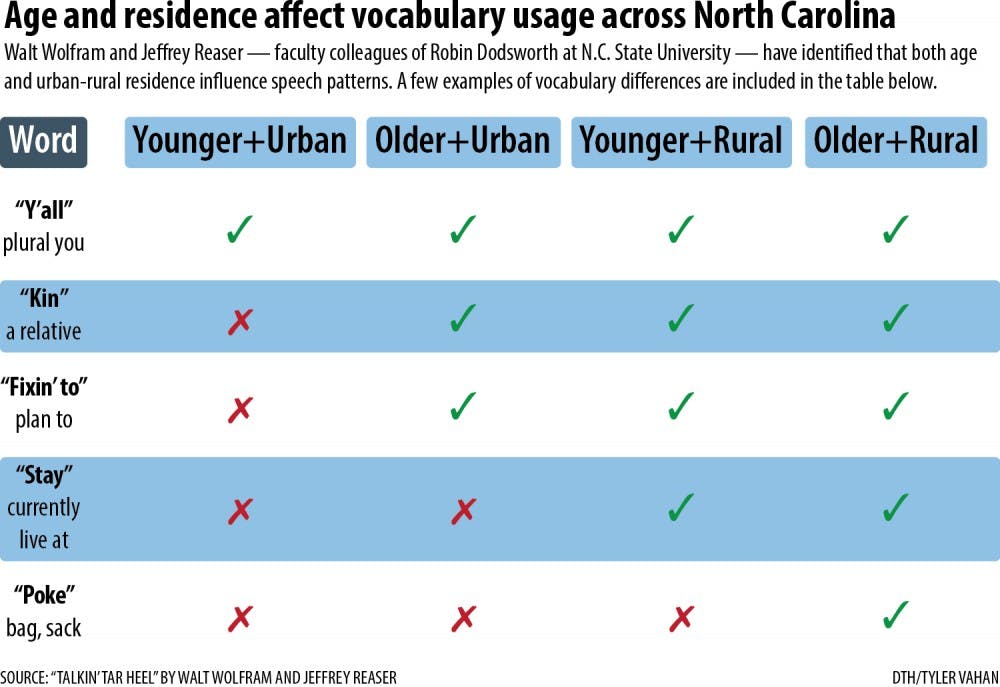To some people, the Southern accent is a euphonic staple of Southern living, while to others it’s a blemish that hearkens back to the Civil War.
But whether you love it or hate it, it’s harder to find in Raleigh, said Robin Dodsworth, a North Carolina State University associate professor of linguistics.
Dodsworth said the gradual change in accent was largely influenced by an influx of people from outside the state. During the rise of the Research Triangle, many white-collar workers from around the nation moved to the Raleigh-Durham area.
“Companies like IBM have all these jobs for folks, and so they move down from the North, and you have a kind of change in population in that sense,” she said. “And you have a lot of people from the North moving in and importing some cultural norms.”
Although the main stimulant of the withdrawal of the Southern accent came with new people, existing residents also changed their dialect, she said. A bad connotation started to accompany the Southern drawl, and as a result, some younger Raleigh residents might try not to speak with a Southern accent.
“I think there’s a lot of young people these days who understand that, in many other parts of the country, a Southern accent is heard as stupid or lazy or uneducated or whatever — even though, of course, there is no truth to that at all,” she said.
Dodsworth conducted the study by conversing for an hour with 300 Raleigh locals over the past 10 years. Each of the interviewees’ voices was analyzed using acoustic analysis software that measures frequencies in the sound wave that are amplified by the shape of the vocal tract.
Christopher Carignan, a post-doctoral research scholar at N.C. State, said Dodsworth’s study is unique.
“There are only a couple places in the world that have this kind of research available,” he said.



